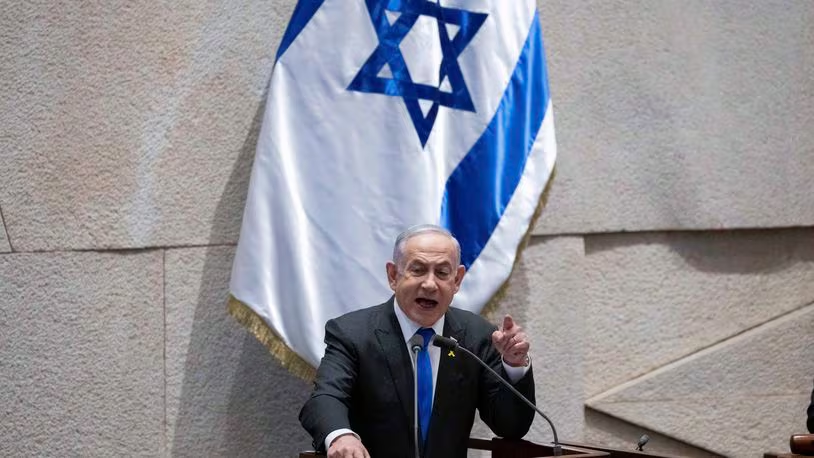
An Israeli delegation arrived in Egypt on Wednesday (Jul. 17) to continue cease-fire talks, that is according to Egyptian airport officials.
The new round of talks between Israel and Hamas is set to consider the latest proposals on the US deal.
This came on the same day as Benyamin Netanyahu gave an address during a session of Israel’s parliament.
He vowed to keep “Hamas under pressure though military and diplomatic” means.
The head of opposition Yair Lapid urged Netanyahu to reach a deal ahead of Netanyahu’s US trip, scheduled for Sunday (Jul. 21).
” If you don’t do it, don’t go to Washington, go to Qatar, go to Cairo, stay here and hold discussions around the clock until you reach a deal. Don’t go addressing in Washington’s air condition, as the hostages are dying from choking in Gaza’s tunnels,” Lapid told Netanyahu.
Talks between the sides were rattled over the weekend when Israel said it targeted Hamas’ military commander. The militant group denied; pointing to the heavy death toll of the Israeli strike.
The Us, Qatar and Egypt lead the mediation.
What does the initial plan include?
The full text of the US proposed deal was never release. According to elements taht were provided:
The first phase calls for a “full and complete cease-fire,” a withdrawal of Israeli forces from all densely populated areas of Gaza and the release of a number of hostages, including women, older people and the wounded, in exchange for the release of hundreds of Palestinian prisoners.
The proposal called for the parties to negotiate the terms of the second phase during the 42 days of phase one. Under the current proposal, Hamas could release all of the remaining men, both civilians and soldiers, during the second phase. In return, Israel could free an agreed-upon number of Palestinian prisoners and detainees. The releases wouldn’t occur until “sustainable calm” takes effect and all Israeli troops withdraw from Gaza. The third phase would see the return of the remains of hostages.
Hamas is concerned that Israel will restart the war after the first phase, perhaps after making unrealistic demands in the talks. Israeli officials have expressed concern that Hamas will do the same, drawing out the talks and the initial cease-fire indefinitely without releasing the remaining captives.





